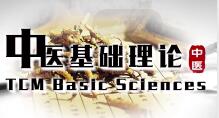
当前课程知识点:Research Methods in Tourism Studies > Week 4 Research Design II > 4.3 Using Mixed Method > 4.3.1 Sustainabble tourism development (1)
返回《Research Methods in Tourism Studies》慕课在线视频课程列表
返回《Research Methods in Tourism Studies》慕课在线视频列表
大家好。
在前几节中,我们学习了如何撰写定性
定量的研究论文。
在这一节中,
我们将演示如何进行混合方法的研究。
我想与大家分享两篇论文,
来演示如何进行混合方法研究。
这两篇论文实际上来自一个大型项目,
都是由中国香港政府资助的研究
论文是关于衡量香港社会和经济的可持续性。
这是本研究的背景。
香港是世界领先的旅游目的地,
每年都吸引着来自世界各地的游客。
事实上,中国内地是香港特别行政区最大的客源市场。
如果我们看一下这里的数字,
这里显示了从1995年到2016年来自中国内地的访客数。
我们从数据中看出游客的数量一直在增加,
而这里有一点下降。
如果你仔细看这里,这里和这一年,
过去几年的访客量经历了一些大起大落,
这实际上这是由签证问题引起的。
例如,在2003年,
我们实施了个人访客计划,
这意味着游客可以持有签证,
用参加旅游团就可以独立旅行。
在该情形下,游客的数量急剧增加。
在2009年金融危机期间,
我们有另一项签证政策,
即一年多次访问签证。
这意味着如果你来自广东省的几个定点城市,
你就可以持有签证,随便去香港旅行。
事实上,在那之后,
来自广东省的游客大量增加,
包括很多走私者。
你可以想象,那些香港居民,
他们的态度非常消极。
所以他们走上街头
进行示威, 试图阻止这种签证。
在这种情况下,2015年,他们试图限制签证。
实际上,后来签证变成了一周一次入境签证。
所以,你可以从数字上看到内陆到访香港的人数也有所下降。
对香港来说,社会和经济的可持续性是
旅游业发展的一个大问题。
正如我们所知,大陆游客
在2016年占到香港总游客数的75.5%以上。
这些签证问题也影响了来自中国大陆的移民。
在这种情况下,香港的旅游业有着非常严重的问题,
很难保持良性发展。
我们知道,旅游业的发展
总会给目的地带来一些社会影响。
例如,旅游业的发展可以提高
消费品和房地产的价格,
也可能会带来游客和当地人的一些文化冲突。
确切的说,公共资源的使用可能被投诉,
尤其是被目的地的公众投诉,
同时也扰乱了当地居民的生活方式
关于旅游业发展对经济的影响,
尽管许多影响是积极的,
例如,增加了他们的国内生产总值,
并有助于当地的福利。
但也存在一些不足之处,
如目的地的经济的溢出
以及短期性经济效益。
面对这些问题,我们的团队设定了这个项目的研究目标。
因此,我们的目标是从当地社区的角度,
开发和验证一种社会和经济可持续性的测量工具,
并为从业人员提供评估当地社会
和经济的可持续性的机会。
这是文献综述。
首先,我们回顾了关于旅游业可持续发展的文献。
这是UNWTO界定的可持续旅游的定义,
可持续旅游是一种
既要满足当前游客
和旅游地区的需求,也要保护
和增加未来的发展机会的旅游发展。
同时,我们也从社会和经济方面回顾了
一些关于旅游可持续发展的文献。
在那之后,我们发现许多研究
虽然衡量了社会和经济方面的因素,
但很少有专门研究
集中在社会或经济方面。
在这种情况下,我们需要提供一个全面的观点,
从社区的角度来看。
我们还发现很难从现有的文献中找到测量社会
或经济可持续性的方法。
现有的关于旅游可持续性的测量大多是非常笼统的,
且包括可持续旅游的各个方面。
-1.1 Research Question and Research Objectives
--1.1.1 Student interview before class
--1.1.2 The starting point: question
--1.1.3 What is a good research question?
--1.1.4 Ways to find a good research question
-1.2 Title Design
--Acticle: Leisure & Travel as Class Signifier: Distinction Practices of China's New Rich
--Discussion: Why do we research?
-1.3 Literature Retrieval Method and Literature Databases
--1.3.1 Common literature retrieval method
--1.3.2 Common literature search database
-1.4 Information Collection and Academic Journals in Tourism
--1.4.1 Academic journals in tourism research
--1.4.2 Literature collection methods and principles
-1.5 Literature Reading
--1.5.2 Overcoming obstacles in literature reading
--Week 1 quiz
--Discussion: What difficulties have you encountered in reading literature?
-2.1 Philosophical Bases of the Two Approaches
--2.1.1 Philosophical bases of the two approaches
-2.2 Differences between the Two Approaches
--2.2.1 Differences between the two approaches
--Article: Does tourist–host social contact reduce perceived cultural distance?
-2.3 Be Aware of Your Own Research Views
--2.3.1 Be aware of your own research views
--Discussion: How to choose research method?
-2.4 Research Example: Social Tourism
--2.4.1 What is social tourism?
--2.4.2 Established frameworks on social tourism
--2.4.3 Major research findings on social tourism
--2.4.4 Major findings of social tourism research
--2.4.5 Opportunities and challenges for social tourism
--Week 2 quiz
- 3.1 Key Procedures in Qualitative Approach
--3.1.1 Key procedures in qualitative approach
-3.2 Qualitative Data Collection and Analysis
--3.2.1 Key procedures and data collection methods in qualitative approach
--3.2.2 Data collection and analysis in qualitative approach
--3.2.3 Data analysis in qualitative approach
-3.3 Case Study and Content Analysis
--Discussion: Have you ever used a qualitative approach in your research?
-3.4 Using Coding and Themes in Qualitative Research
--3.4.1 Using coding and themes in qualitative research(1)
--3.4.2 Using coding and themes in qualitative research(2)
-3.5 Using Conceptual Framework in Qualitative Research
--3.5.1 Using conceptual framework in qualitative research(1)
--3.5.2 Using conceptual framework in qualitative research(2)
--Article: Tourist typology in social contact: an addition to existing theories
--Week 3 quiz
--Discussion: How to ensure the reliability and validity of qualitative study?
-4.1 Using Questionnaires in Quantitative Research
--4.1.1 Make an effective literature review and research method design
--4.1.2 Learn to write powerful findings and discussion
-4.2 Using Experiment in Quantitative Research
--4.2.4 Eye tracking experiment
-4.3 Using Mixed Method
--4.3.1 Sustainabble tourism development (1)
--4.3.2 Sustainabble tourism development (2)
--Article:Creating a scale for assessing socially sustainable tourism
--Week 4 Quiz
--Discussion: How to use quantitative methods to study tourists' reaction?
-5.1 Current Research Priorities
--5.1 1 A review of hospitality research
--5.1.2 Impact of information technology on hospitality and tourism research
-5.2 Multi-Level/ Multiple Sources of Date Collection
--5.2.1 Experimental design (1)
--5.2.2 Experimental design (2)
--5.2.3 Multi-level/multiple sources of data collection
-5.3 Mixed Method and Interdisciplinary Research
--5.3.2 Interdisciplinary research
--Article: The meanings of destination: a Q method approach
--Discussion: Can you talk about your understanding of research methods?
-5.4 Using Delphi Method in Research Design
--5.4.1 What is the Delphi method?
--5.4.3 Characteristics of the Delphi method
--5.4.4 Predicting the future of wine tourism
--Week 5 quiz
--Discussion: Philosophical basis of research methods
-6.1 Journal Publication
--6.1.1 How to publish in the top journals? (1)
--6.1.2 How to publish in the top journals? (2)
--6.1.3 How to publish in the top journals? (3)
--6.1.4 How to publish in the top journals? (4)
--Article: Analyzing the economic sustainability of tourism development: evidence from Hong Kong
-6.2 Academic Ethics
--6.2.2 Student interview after class
--Week 6 quiz
--Discussion: Academic publication and academic ethics
--Final quiz

